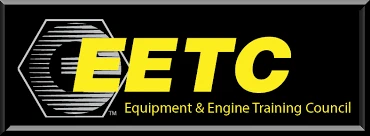
Archive for May 2022Busted! Air Conditioning (Air Conditioning Maintenance)Posted May 29, 2022 8:02 AMYour vehicle's air conditioning is something you count on when the weather heats up. But there's bound to be a day when you turn it on and one of these things happens:
Some people are tempted to try to make the diagnosis—and the repair—on their own. They think it's just run out of refrigerant and they can pick up a can at a local auto parts store and re-charge it. If only it was that easy. A vehicle's air conditioning system is complex and made up of many parts. A compressor, evaporator, condenser, tubing, hoses, sensors, valves… the list goes on and on. Each of these components could be the reason for the problem. It could be a leak that's letting the refrigerant escape, but simply re-charging the system hasn't fixed the problem. You have to find the source of the leak and fix it. Service facilities have a device called a "sniffer" which can sniff out refrigerant chemicals. And they can use black light to locate refrigerant that has an ultraviolet dye in it. But often other components wear out; blower motors go bad, resistors blow, tubes clog, compressors fail. And diagnosing that takes training and special equipment you'll find at your service facility. One other thing to keep in mind. It's always better to catch any problems in the air conditioning system before it fails. Ask your service advisor about having the A/C checked as part of the vehicle's maintenance. That's the cool way to go. Steve & Stacy's Servicenter Improve Your Night Vision When Driving in CharlestonPosted May 22, 2022 10:34 AMNight driving in Charleston is not as safe as daylight driving as evidenced by the increased accident rate at night. Much of that is simply because it's dark outside. Steve & Stacy's Servicenter When Metal Meets Metal (Wheel Bearings)Posted May 15, 2022 7:34 AMWhat part of your vehicle has little metal balls inside that are lubricated and allow you to cruise on down the road? They are wheel bearings, and automotive designers might argue they are human beings' second greatest invention of all time (the first is, of course, the wheel!). You have a wheel bearing at each wheel. They allow your wheels to turn freely, minimizing friction that would ordinarily slow you down when metal meets metal. When one of your wheel bearings starts to go bad, it lets you know. A wheel bearing does its work quietly when it's in good health but starts getting noisy when it isn't. People describe the noise differently. Sometimes it sounds like road noise, a pulsating, rhythmic, sound. That pulse speeds up when your vehicle speeds up. Here's what's happening when you hear that sound. As mentioned, the bearing has these little metal balls inside a ring. They have a lubricant inside to reduce friction between the balls; modern wheel bearings are sealed and they're intended to do their job without any maintenance. Wheel bearings take a beating; you hit some rough potholes or go over some uneven railroad tracks. Sometimes water can get into a bearing and reduce the ability of the lubricant to do its job. Time starts to take its toll, too. When the lubricant isn't reducing friction like it should, the bearing can heat up. One of those little balls can start shedding pieces of metal and soon those shards start grinding up the other balls. Friction takes over and soon your wheel isn't turning smoothly. That's what's causing the sound. If a wheel bearing is not fixed, it could eventually seize up completely, and you can be stranded. It's a lot easier if you heed the early warning signals, that pulsating noise. Now, sometimes a similar noise can be caused by a bad tire, but in either case, it's important to have it checked out. Our Steve & Stacy's Servicenter technicians will be able to tell you fairly quickly what the problem is and offer a solution. Wheel bearings generally don't fail often and usually last from 85,000-100,000 miles/140,000km to 160,000km. But consider them a long-term maintenance item that, once fixed, will keep you heading smoothly to the next destination. Steve & Stacy's Servicenter Cool Running (Water Pump)Posted May 8, 2022 7:08 AMYour vehicle is like you in a way. When it gets hot, it needs to be cooled down. And one of the key parts to keeping it cool is the water pump. Now, that's a bit of a misnomer. It IS a pump, but it's pumping coolant, not pure water. Cooling off your engine is vital since it builds up heat when it creates power by burning fuel. Your water pump acts as a way to recirculate that coolant. It goes through a series of tubes and hoses through the engine where it picks up heat, then is sent off to the radiator to get rid of that heat. Cooled off, the coolant is recycled through the water pump to start the journey again. The water pump works by taking mechanical power from the engine, usually from a belt. Obviously, that belt has to be in good condition and adjusted properly or else the water pump won't be able to do its job. Here are some things to look for that will signal problems with your water pump. If your heat gauge is erratic or showing a much higher than normal temperature, that could be a sign of trouble. Another is if you hear a whine under the hood. And if that gets louder when you go faster, get it checked right away. You may see steam coming out from under the hood or coolant may be leaking. These signs signal that it's time for you to have a technician check to see where the problem is. Some water pumps are powered by a timing belt. If your vehicle has that design and your timing belt is due for replacement, sometimes it's a good idea to replace the water pump too, even if it's working properly. That's because the labor to replace the timing belt can be expensive and it may be wise to proactively take care of the water pump while it's disassembled. Your service advisor will explain the options available and offer the best path to keeping your water pump doing its job. Your engine's life depends on it. Steve & Stacy's Servicenter Growing Old Together (Maintaining an Older Vehicle)Posted May 1, 2022 10:57 AMMore and more of us are hanging on to our vehicles longer. A company by the name of HIS Markit recently released a report that shows the average age of light vehicles in the U.S. is now 11.8 years. Light vehicles are cars, SUVs (sport utility vehicles) and CUVs (compact utility vehicles). In Canada, the average life expectancy of a vehicle there is around 13 years, and in the U.S., it's around 15. Vehicles are lasting longer these days, and there are several reasons for that. One expert cites better technology and overall quality improvements. While in past years, vehicles were made mainly of heavier steel components, more modern vehicles contain lighter magnesium and aluminum alloys, high-strength steel, polymers and carbon fiber. They last longer and reduce the overall vehicle weight, and that can contribute to better fuel economy. Modern internal combustion engine designs have been improved, and since they use more computers, they are more efficient with better performance. Those factors also contribute to a longer-lasting powertrain. In fact, it's not unusual to see a powertrain easily last 150,000 miles/250,000 kilometers or more with no major failures. Drivers are also taking their vehicles in more regularly for periodic maintenance. Choosing one service facility for all your maintenance can contribute to your vehicle's longevity, too, since technicians know your vehicle's repair and service history. If you bought your vehicle taking out a 5-year loan and you keep it 11 years, you've managed 6 of those years without a payment, always a nice feeling. Plus, a bonus is that you get very familiar with every aspect of that vehicle's sounds, smells, handling, stopping characteristics, visibility and limitations. And the more familiar you are with your vehicle, the more confident you can be as a driver. Steve & Stacy's Servicenter | ||
SearchArchiveApril 2016 (16)May 2016 (5) June 2016 (4) July 2016 (5) August 2016 (4) September 2016 (4) October 2016 (5) November 2016 (4) December 2016 (4) January 2017 (5) February 2017 (4) March 2017 (4) April 2017 (3) May 2017 (4) June 2017 (5) July 2017 (5) August 2017 (3) September 2017 (3) October 2017 (5) November 2017 (4) December 2017 (3) January 2018 (5) February 2018 (4) March 2018 (4) April 2018 (5) May 2018 (4) June 2018 (4) July 2018 (5) August 2018 (4) September 2018 (5) October 2018 (4) November 2018 (4) December 2018 (5) January 2019 (5) February 2019 (4) March 2019 (4) April 2019 (4) May 2019 (4) June 2019 (5) July 2019 (4) August 2019 (4) September 2019 (5) October 2019 (4) November 2019 (4) December 2019 (5) January 2020 (5) February 2020 (4) March 2020 (5) April 2020 (4) May 2020 (5) June 2020 (4) July 2020 (4) August 2020 (5) September 2020 (3) October 2020 (4) November 2020 (5) December 2020 (4) January 2021 (6) February 2021 (4) March 2021 (4) April 2021 (4) May 2021 (5) June 2021 (4) July 2021 (4) August 2021 (5) September 2021 (4) October 2021 (5) November 2021 (3) December 2021 (4) January 2022 (6) February 2022 (4) March 2022 (4) April 2022 (4) May 2022 (5) June 2022 (4) July 2022 (5) August 2022 (4) September 2022 (4) October 2022 (5) November 2022 (4) December 2022 (4) January 2023 (5) February 2023 (4) March 2023 (4) April 2023 (5) May 2023 (4) June 2023 (4) July 2023 (5) August 2023 (4) September 2023 (4) October 2023 (5) November 2023 (4) December 2023 (5) January 2024 (5) February 2024 (4) March 2024 (5) April 2024 (4) May 2024 (4) June 2024 (5) July 2024 (4) August 2024 (4) September 2024 (5) October 2024 (4) November 2024 (4) December 2024 (5) January 2025 (4) February 2025 (4) March 2025 (5) April 2025 (4) May 2025 (4) June 2025 (5) July 2025 (1) | CategoriesMaintenance (8)Service Intervals (2)Service Standards (2)Steering (6)Keys to a long lasting vehicle (2)Air Conditioning (7)Fuel Economy (4)Fuel System (5)Battery (9)Alignment (7)What Customers Should Know (67)Transmission (3)Brakes (14)Dashboard (1)Headlamps (4)Auto Safety (4)Safety (2)Fluids (6)Alternator (5)Oil Change (8)Fuel Saving Tip: Slow Down (2)Tires and Wheels (4)Cooling System (7)Drive Train (4)Winter Prep (2)Inspection (2)Windshield Wipers (2)Check Engine Light (3)Tires (10)Timing Belt (2)Automotive News (1)Exhaust (9)Winter Tires (1)Older Vehicles (1)Water Pump (2)Wheel Bearings (1)Suspension (2)Transfer Case Service (1)Spark Plugs (2)TPMS (3)Shocks & Struts (1)Brake Service (4)Tire Rotation and Balancing (2)Differential Service (1)Serpentine Belt (1)Shocks and Struts (2)Fuel Filter (1)Engine Air Filter (1)Trip Inspection (1) | |
What our clients are saying about us
We have established longterm and stable partnerships with various clients thanks to our excellence in solving their automotive needs!
Awesome staff! They are so kind and helpful and went out of their way to help me out when I was in a pinch nearby.

I am a repeat customer - went to get my oil changed and they reminded me that I was not yet time! I very much appreciate the honesty and looking out for me!





















